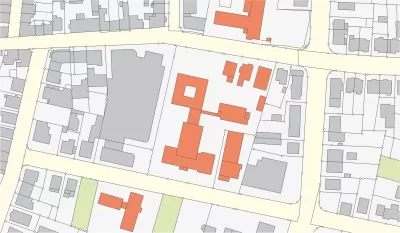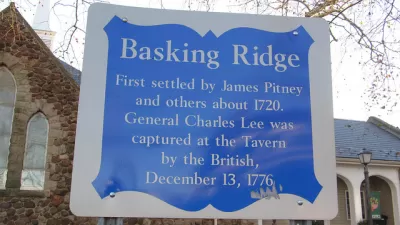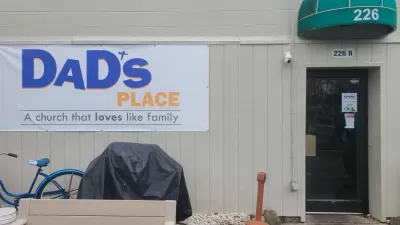Hasidic Orthodox Jewish developers allege the town of Forestburgh, New York, altered zoning regulations to dissuade them from building homes on a site that had received previous approval under different ownership; state officials appear to agree.

The New York state attorney general’s office has intervened in an ongoing land use controversy in Forestburgh, New York (pop. 793). According to the Times Union, “The state attorney general’s office is warning the leaders of a Sullivan County town that zoning regulations they adopted last year for ‘places of worship’ may be discriminatory because they appear to have been designed to block a large development project proposed by Hasidic Orthodox Jews.”
The issue began four years ago when the developers, who have Hasidic Orthodox Jewish principles, purchased property and development rights for $13 million from another developer who had received approvals from the town for a planned development district with 2,000 residences. But a lawsuit filed earlier this year, the second associated with this issue, alleges the town enacted burdensome zoning regulations — including requiring a minimum of five acres for places of worship and lot-line setbacks that are larger than those required for similar building uses — because the developers intend Jewish people to live there. “They said the town also raised their property assessment and increased development fees to dissuade them from developing the site,” reports Brendan J. Jones for the Times Union.
Town officials dispute the accusations, saying the regulations do not specifically call out any race or religion. But the state’s attorney general office’s letter to Forestburgh’s town supervisor states that the zoning regulations in question contain no written justification for the onerous restrictions on religious uses and therefore appear to violate state and federal religious discrimination laws. The regulations were also developed in closed-door executive sessions with no public minutes, so “it is impossible to know what the deciding factors were in imposing the prohibitive size requirements on religious uses.”
The Times Union also reports that this issue is not a unique one in the state. Three years ago, New York attorney general’s office reached agreements with a few other towns to end what state officials say were discriminatory housing practices also designed to prevent Hasidic Orthodox Jewish residents from moving there.
FULL STORY: Attorney general warns town its zoning regs appear to thwart Jewish developers

Maui's Vacation Rental Debate Turns Ugly
Verbal attacks, misinformation campaigns and fistfights plague a high-stakes debate to convert thousands of vacation rentals into long-term housing.

Planetizen Federal Action Tracker
A weekly monitor of how Trump’s orders and actions are impacting planners and planning in America.

In Urban Planning, AI Prompting Could be the New Design Thinking
Creativity has long been key to great urban design. What if we see AI as our new creative partner?

Chicago’s Ghost Rails
Just beneath the surface of the modern city lie the remnants of its expansive early 20th-century streetcar system.

Baker Creek Pavilion: Blending Nature and Architecture in Knoxville
Knoxville’s urban wilderness planning initiative unveils the "Baker Creek Pavilion" to increase the city's access to green spaces.

Pedestrian Deaths Drop, Remain Twice as High as in 2009
Fatalities declined by 4 percent in 2024, but the U.S. is still nowhere close to ‘Vision Zero.’
Urban Design for Planners 1: Software Tools
This six-course series explores essential urban design concepts using open source software and equips planners with the tools they need to participate fully in the urban design process.
Planning for Universal Design
Learn the tools for implementing Universal Design in planning regulations.
planning NEXT
Appalachian Highlands Housing Partners
Mpact (founded as Rail~Volution)
City of Camden Redevelopment Agency
City of Astoria
City of Portland
City of Laramie




























